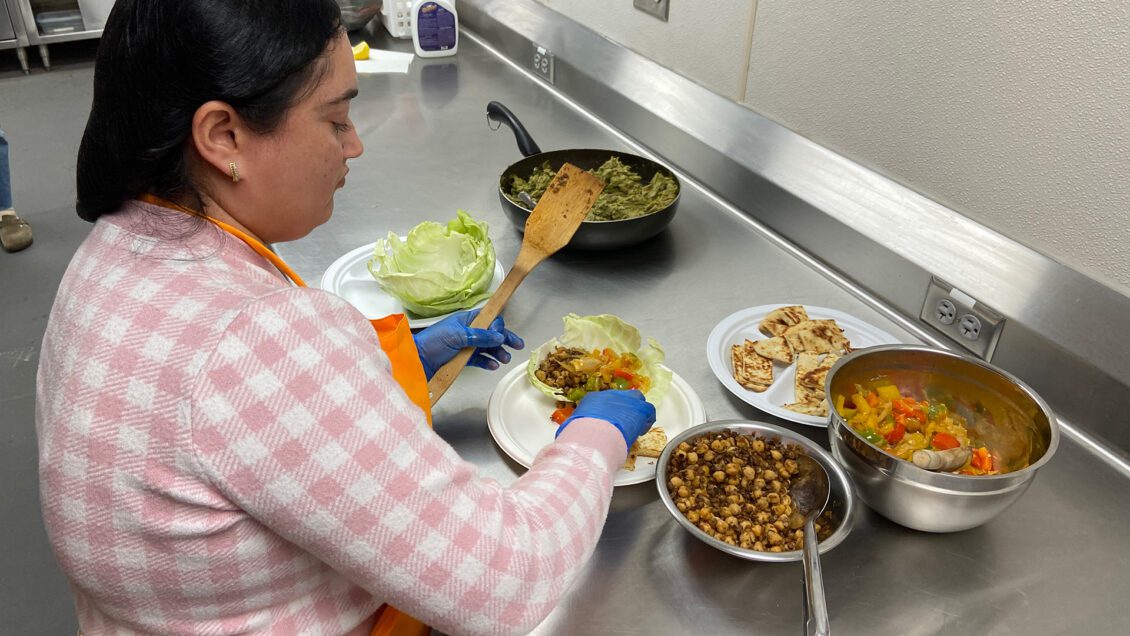
Clemson University students are tackling the global issue of “hidden hunger” with a creative approach: a cookbook featuring pulse-based recipes aimed at addressing undernutrition and obesity.
What exactly is “hidden hunger?” It’s a widespread problem affecting billions worldwide, characterized by malnutrition—even in those who might appear well-fed. This condition stems from nutrient deficiencies, excesses, or imbalances, and can impact people of all ages.
To help combat this problem, students from Clemson’s Pulse Quality and Nutritional Breeding program, led by Professor Dil Thavarajah, have compiled the Tiger Gardens: Pulse Cookbook. This online collection showcases affordable and nutrient-rich pulse crops like beans, chickpeas, lentils, and peas, dubbed “poor man’s meat” for their protein content and low cost.

Dillan Hazzard, a senior agribusiness major from Marshfield, Massachusetts, said the goal of the cookbook is to provide information and educate people on how to cook pulses.
“It is important that people looking to change their diets or spending habits have access to this book in the easiest way possible,” Hazzard said. “By sharing these recipes, people can learn about pulses and then help spread the word about the benefits of eating pulses.”
The cookbook not only features recipes contributed by students but also includes valuable nutritional information, cost per serving, and preparation details for each dish. It’s a comprehensive guide aimed at encouraging healthier eating habits.
Students and their recipes
The recipes represent a variety of cuisines. Jacob Johnson, a plant and environmental sciences junior with a concentration in agricultural biotechnology from Conway, South Carolina, takes Mexican and Mexican American cuisine to a new level. His recipe for Garbanzomole offers a healthier take on the classic guacamole dip.
“Garbanzomole is made with chickpeas to add more body and increase its nutritional levels,” Johnson said. “People can eat it with chips or on classics like tacos and burritos.”
In addition to the Garbanzomole recipe, Johnson also provides recipes for Chicken Tortilla Soup and Smoky Refried Lentils. Hazzard shakes it up with recipes for Hazzardly Nutritious Pesto Pasta and Butter Chickpeas, while Charlie Kresser of Fort Mill, South Carolina, shares a recipe for Cherokee Bean Cakes and Dumplings and a recipe for Greek Style Butterbeans.
Other recipes include Lentil Fritters, Pulse and Veggie Wrap, and Sonia’s Seasoned Rice by Sonia Salaria of Pathankot, Punjab, India. Nathan Windsor of Greenville, South Carolina, tempts tastebuds with Sri Lankan Red Lentil Curry, and Spring Pea and Cheese Tortellini. Professor Thavarajah provides a recipe for Chickpea Bread.
The creation of “Tiger Gardens: Pulse Cookbook” celebrates the 10th anniversary of the student-run Tiger Gardens. This garden is a model for year-round access to nutritious vegetables, focusing on micronutrients and proteins. The goal is to increase people’s knowledge of healthy crops and overall garden maintenance.
Students prepare pulse crop dishes
Students in the Clemson Pulse Quality and Nutritional Breeding program prepare dishes from recipes shared in the Tiger Gardens: Pulse Cookbook.








Eating together in the South Carolina Botanical Garden
To celebrate the end of the spring semester, students and faculty gather in the South Carolina Botanical Garden to eat dishes made using the students’ recipes in Tiger Gardens: Pulse Cookbook.





Growing healthy crops in Tiger Gardens
Tiger Gardens is a model for year-round access to nutritious vegetables, focusing on micronutrients and proteins.





Get in touch and we will connect you with the author or another expert.
Or email us at news@clemson.edu
